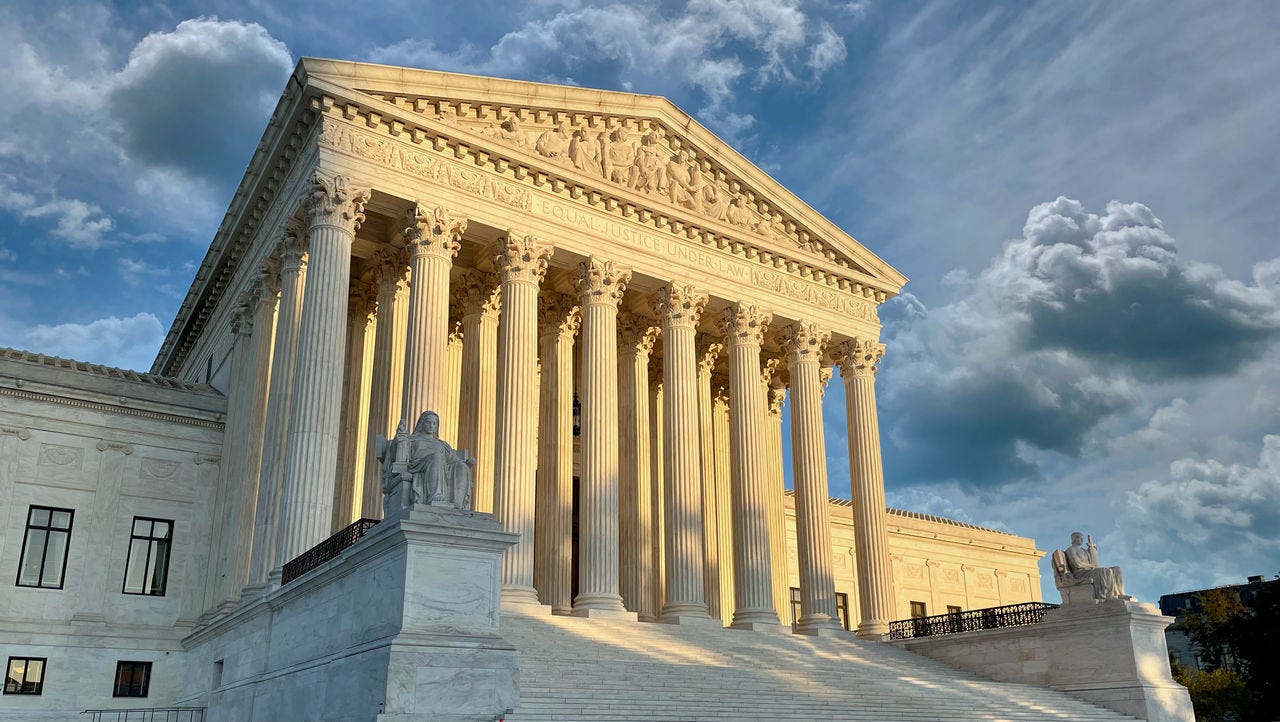The Final Days Of This Supreme Court Term
One of the most consequential Supreme Court terms comes to an end.
The 2023-24 Supreme Court term already is a dynamic one. The justices, among other rulings, unanimously rejected a leftist effort to throw President Trump off of ballots based on the Insurrection Clause of the Constitution’s Fourteenth Amendment. Several blockbusters await announcement this week.
The most crucial case is Trump v. United States. The Court is considering whether a former president has immunity from criminal prosecution for his official presidential acts. Special Counsel Jack Smith indicted Trump after the January 6, 2021 riot at the Capitol. One of the allegations is Trump contemplated firing his acting attorney general—clearly an official act. If presidents fear their successors will imprison them for their official acts, this will destroy the presidency and thus our country. Could President Obama face charges for the extrajudicial killings overseas of American citizens via drone strike? Could President Biden face indictment for helping cartels make millions from human trafficking? Could President Bush face prosecution over the Iraq War? From the oral argument, it seems likely that five or six justices are willing to grant presidents some immunity protections.
Another January 6 case, Fischer v. United States, is one of the Court’s remaining landmark decisions. The Biden Justice Department has abused an Enron-era obstruction-of-justice statute, with a 20-year maximum sentence, to hammer hundreds of January 6 defendants. At oral argument, a majority of the justices appeared skeptical of the Biden DOJ's expansive interpretation of the statute. If Fischer prevails, the Court will afford hundreds of defendants a semblance of justice, both in terms of their convictions and sentences. The Court likely will rule for Fischer, hamstringing the Biden DOJ’s efforts to railroad January 6 defendants into plea deals.
Cutting back on the administrative state has been a goal of conservatives for decades. The justices will have a chance to do just that by overruling or scaling back what is known as Chevron deference. Under this standard, courts must defer to agency interpretations of ambiguous statutory provisions if those interpretations are reasonable. This deference allows Congress to delegate its constitutional legislative authority to bureaucrats in the Executive Branch, many of whom are protected from termination other than for cause.
In Relentless v. Department of Commerce and Loper Bright Enterprises v. Raimondo, the Court has a golden opportunity to get rid of the 40-year disaster that is Chevron deference. At the very least, the Court could scale back the deference, narrowing the scope of what constitutes an ambiguous statutory provision that would trigger this deference. It is likely that the Court will overrule or at least narrow Chevron. This will drive lovers of the administrative state mad. They want unelected and unaccountable bureaucrats to continue to make decisions that are painful for Congress to make and difficult for judges to review.
One more significant case warrants discussion: Securities and Exchange Commission v. Jarkesy. This case concerns whether an administrative agency can impose punishment against someone through an administrative law judge and not a jury. Jarkesy argues that he has a Seventh Amendment right to a trial by jury. If the Court rules in his favor, it would impact not only the SEC, but also other administrative agencies that levy massive fines without jury input. The case also concerns whether administrative law judges are subject to removal at the whims of the president.
The statute at issue dictates that only for-cause removal is permissible. The head of the SEC is subject to removal at the president’s pleasure. Jarkesy claims that this provision violates the Appointments Clause of Article II of the Constitution. The Court likely will rule that Jarkesy is entitled to a jury trial and that the SEC cannot fine him using current agency procedures. If the Court holds in this direction, it might not need to reach the issue of for-cause removal of administrative law judges. Jarkesy would receive his jury trial in federal court, assuming that the justices strike down the statutory provision that allows the SEC to enforce its rules administratively instead of through a court.
Each of these cases is complicated and would consume a whole piece. The media can, of course, be expected to provide slanted coverage, especially concerning the January 6 cases. The Article III Project will immediately refute mainstream media distortions and provide proper perspective.




Clear, succinct, accurate and sans spin--thank you!!
Thanks for your to-the-point explanations. Best guest on War Room and Megan Kelly